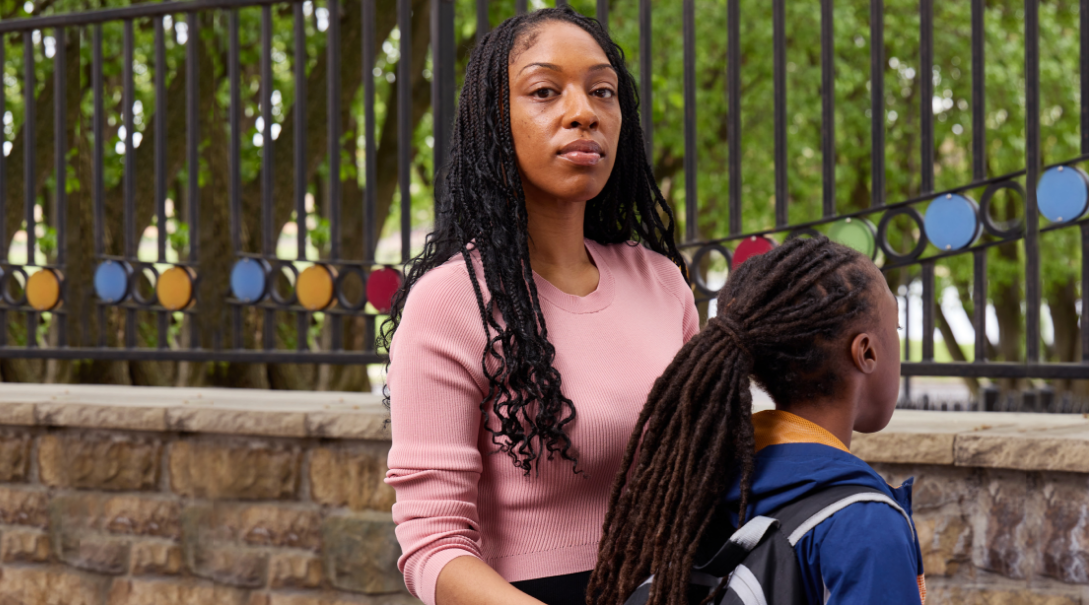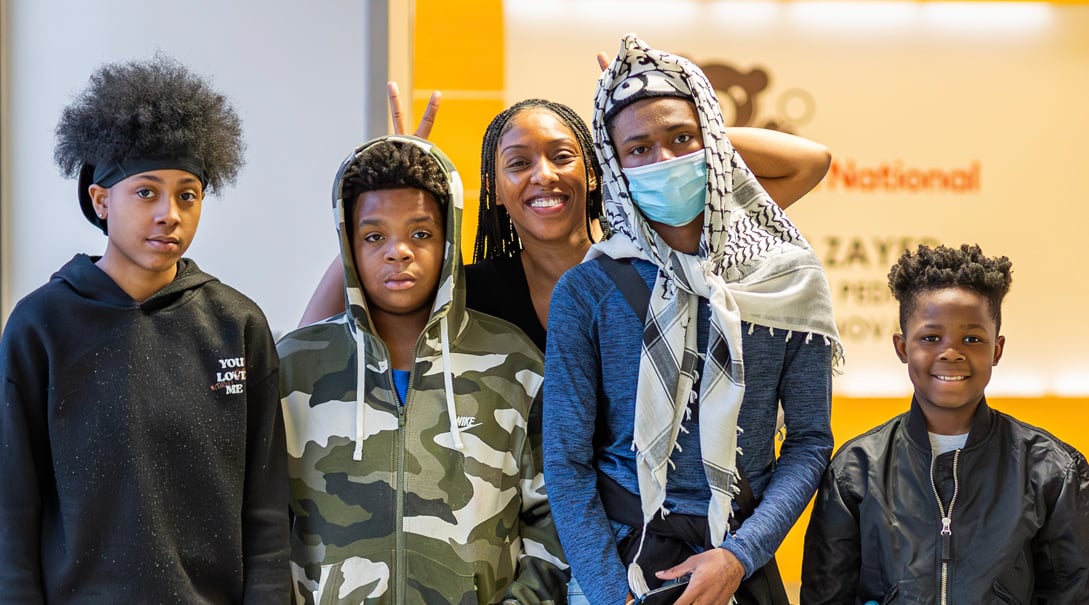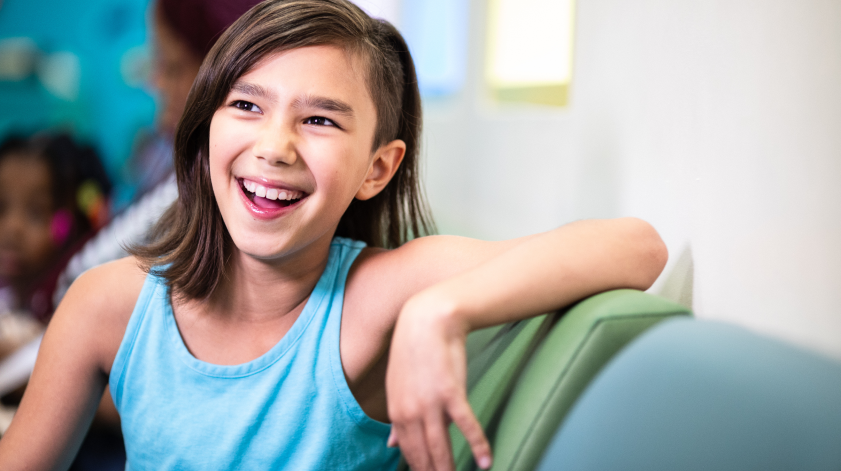
Jawanna Hardy
Tackling Gun Violence

Building Connections to Save Lives

The 10-year-old recovering from surgery to repair a gunshot wound refused to speak to anyone in our Pediatric Intensive Care Unit. His mother also had been shot and was at a different hospital. Yvonne Doerre, LICSW, longtime Children's National Hospital social worker and part of our Youth Violence Intervention Program, called in her colleague, Jawanna Hardy.
Hardy, an experienced educator and community activist, scanned local social media accounts. She made a few phone calls, then walked into the patient's room. "I said his brother's name and asked if he wanted to FaceTime him," she says. "He smiled so big his whole face lit up."
As the hospital's first violence intervention specialist, Hardy supports patients who experience violence, starting with when they're in the Emergency Department (ED) and for months afterward. Her superpowers? Connections to community resources, bravery and street smarts. Most of all, she has an abundance of compassion. While the 10-year-old patient was in the hospital, Hardy brought snacks for his siblings to their home. "They were struggling with food insecurity even before the shooting," Hardy says. "It's very hard to go through life on an empty stomach."
The team followed up with family care and support for several months. They connected siblings to community-based therapy resources and provided logistical and emotional support to the boy's single mother. They also mentored the oldest brother, 19, to steer him away from thoughts of retaliation. "I witnessed the brother's attitude shift to focus on his little brother's care and his family's healing," Hardy says. "It was beautiful to see."
Critical Community Care
Hardy grew up in Capitol Heights, Maryland, in Prince George's County. At 12, she started a low-cost home day care to help moms in her neighborhood. "I hate to see people struggle," she says.
As a teen, she and her mother made sandwiches for the homeless even when they didn't have enough food themselves. At 19, she joined the United States Air Force for six years. When she came home, she was dismayed by the impact of gun violence on her neighborhood. She founded a nonprofit to support families and advocate for positive change. The Youth Violence Intervention Program team at Children's National recruited Hardy in 2022 to add a critical community component to care.
The window in the team's small workroom looks out onto the ambulance bay outside our ED. Hardy often meets children with gunshot wounds there as hospital staff carry them in on stretchers. Items stuffed in the pocket of a kid's jacket retrieved from the ambulance might give her clues about where they go to school. "Obviously keeping children alive is our top priority," she says. "Then we quickly switch to community support for these kids."
Exactly who are they? "They are bright. They are leaders, full of personality," she says. "Every story is different, but they are good kids, most of whom have done nothing wrong."
A recent caseload included 10 children, ages 8 to 15, considered to be at highest risk for experiencing repeat gun-related violence. One is a 15-year-old who was shot nine times in a case of mistaken identity after he moved into a new neighborhood. Another, 14, is paralyzed from the waist down after being shot. Hardy says he hasn't wanted to leave home or return to school. She recently paid for transportation so he could get a haircut and visit a friend.
"It's hard to explain how everyday life is so hard for these kids," Hardy says. "There's a lot of fear after the trigger is pulled. It's easy for them to fall behind in school. They are cautious about things as simple as going to the playground. Our team helps reintroduce them to the world. Sometimes it's as simple as just showing up."
It's a big deal having Miss Hardy on our team and representing Children's National in the community. She builds tremendous credibility and creates a bridge to care.
― Yvonne Doerre, LICSW

Make a Difference
Your charitable donation changes children’s lives. Support exceptional health care and discoveries that offer hope, healing and brighter futures.


